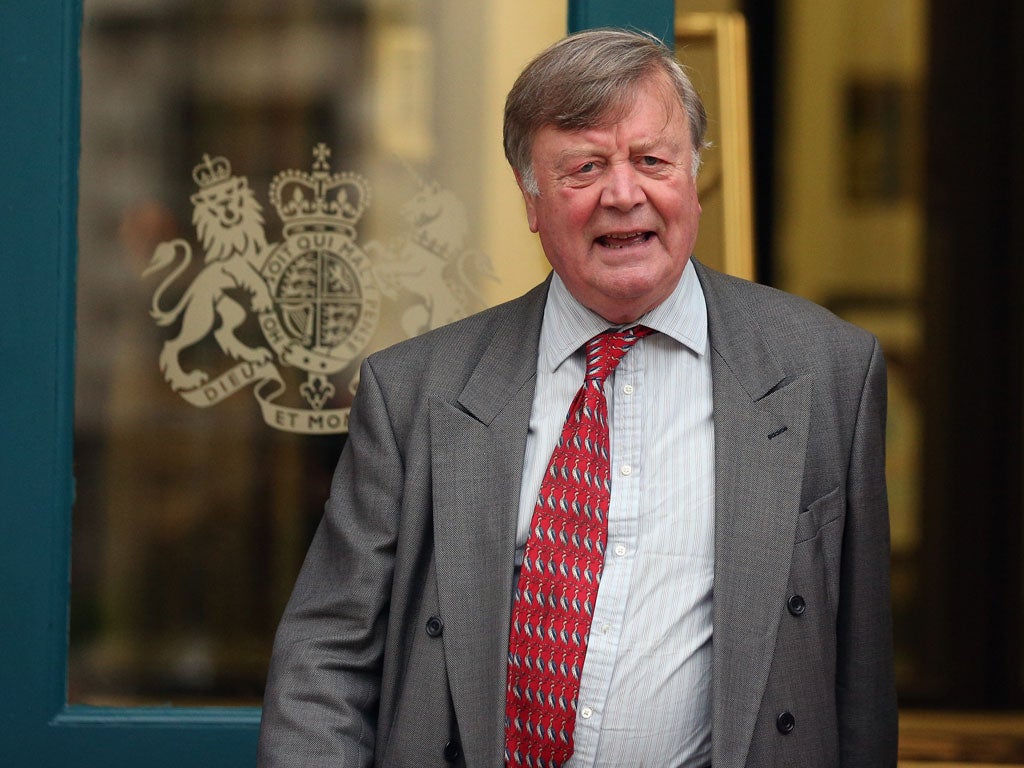Kenneth Clarke backs away from marriage tax comments

Your support helps us to tell the story
From reproductive rights to climate change to Big Tech, The Independent is on the ground when the story is developing. Whether it's investigating the financials of Elon Musk's pro-Trump PAC or producing our latest documentary, 'The A Word', which shines a light on the American women fighting for reproductive rights, we know how important it is to parse out the facts from the messaging.
At such a critical moment in US history, we need reporters on the ground. Your donation allows us to keep sending journalists to speak to both sides of the story.
The Independent is trusted by Americans across the entire political spectrum. And unlike many other quality news outlets, we choose not to lock Americans out of our reporting and analysis with paywalls. We believe quality journalism should be available to everyone, paid for by those who can afford it.
Your support makes all the difference.Cabinet minister Kenneth Clarke today backed away from comments suggesting that the Conservatives may not make good on a promise to give tax breaks to married couples during the course of this Parliament.
In an interview with the Daily Telegraph today, Mr Clarke suggested that married couples should not "count on" receiving the break before the 2015 poll, claiming that he did not remember anyone in the Government promising it.
His comments seemed to be at odds with the Tory manifesto promise in the 2010 election of a transferable tax allowance that could be worth £150 a year to married couples where one spouse stays at home. But a spokeswoman today said Mr Clarke accepted that the change will happen, and was not intending to make a statement of policy in his comments.
The measure was opposed by Liberal Democrats, but was not ruled out in the Coalition Agreement, which stated merely that MPs from Nick Clegg's party would be free to abstain when measures were brought forward in Parliament.
In his interview, Mr Clarke appeared to indicate that married tax allowances were likely to be a casualty of the tough economic conditions.
Despite the better-than-expected growth of 1% in the third quarter of 2012 announced earlier this week, he said it was too early to be certain the economy is bouncing back and predicted "a long hard road" ahead.
"We never committed ourselves to married couples' tax by the end of the Parliament," the minister without portfolio told the Telegraph.
"I'm married, I'm not counting on it. I don't remember anyone promising that kind of thing."
However, a spokeswoman for Mr Clarke said today: "It was a comment, not a statement of policy. Any tax changes are a matter for the Chancellor. He accepts the changes will happen."
On the economy, Mr Clarke - a former chancellor - said: "It would be absolute folly to turn around and say it will all be fine by Christmas.
"Anybody who says we are absolutely certain we are bouncing back to strong growth is being very optimistic."
And the committed europhile sent out a warning to Conservative colleagues that they should not open up the debate about British withdrawal from the European Union.
Prime Minister David Cameron has said he will seek a "fresh settlement" of Britain's relations with the EU after the election, but Education Secretary Michael Gove was recently reported to have gone further by suggesting that the UK should use the threat of possible withdrawal as a weapon in negotiations.
Mr Clarke said: "To start threatening, throwing into the air our relationship with the outside world, with the global economy, would I think be very reckless.
"I frequently say that to several of my colleagues: there seems little point in opening up the debate at the moment about our membership of the European Union."
Despite the current disarray in the eurozone, Britain's economic woes were caused by "the folly of bankers, the uselessness of regulators and the weakness of government", and not by EU membership, he said.
"The idea that somehow the present problems are caused by Britain's membership of the European Union is a theory that I can't quite follow," said Mr Clarke.
Join our commenting forum
Join thought-provoking conversations, follow other Independent readers and see their replies
Comments